11. Martyrs (2008)
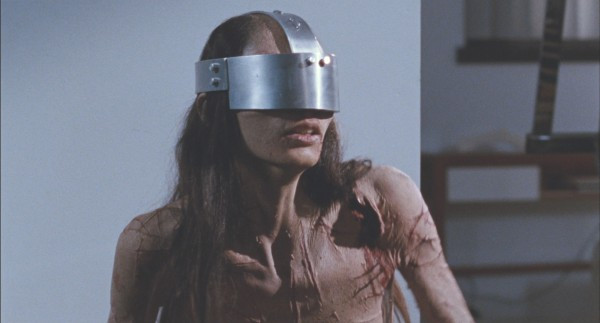
If there’s only one torture-porn film that is a “must-see”, it’s probably this one. One of the few films of said-genre which actually justifies its existence and its unforgivable brutality by asking the point to it all, Pascal Laugier’s ‘Martyrs’ has secured its rank as one of the best horror films made since 2000.
Lucie’s (Mylène Jampanoï) search for justice on the strangers who tortured her as a child sends her friend Anna (Morjana Alaoui) into a similar situation of depravity.
‘Martyrs’ is barely watchable, and most will find it too disgusting to finish let alone appreciate. It’s up there with ‘Salò, or the 120 Days of Sodom’ as one of the cruellest, most disturbing movies ever made, and certainly isn’t going to restore your faith in humanity any time soon.
It’s distressing because each act of cruelty ups the ante to the point that it’s meaningless. Ultimately the only reason the torture exists is so that it may be seen; at the end it’s revealed that “martyr” actually translates to “witness”.
‘Martyrs’ reminds us that the suffering that we are seeing is only for the sake of us – the viewer – and our pleasure. We’re ticketholders at an atrocity exhibition, forced to feel the same “nausea” Sartre described in his seminal existential novel.
‘Martyrs’ deserves to be seen by those who can stomach it. Its unapologetic nihilism forces as to take responsibility for own gaze, and even forces us to consider ourselves as characters in a meaningless stage play for the Gods.
12. Zombieland (2009)
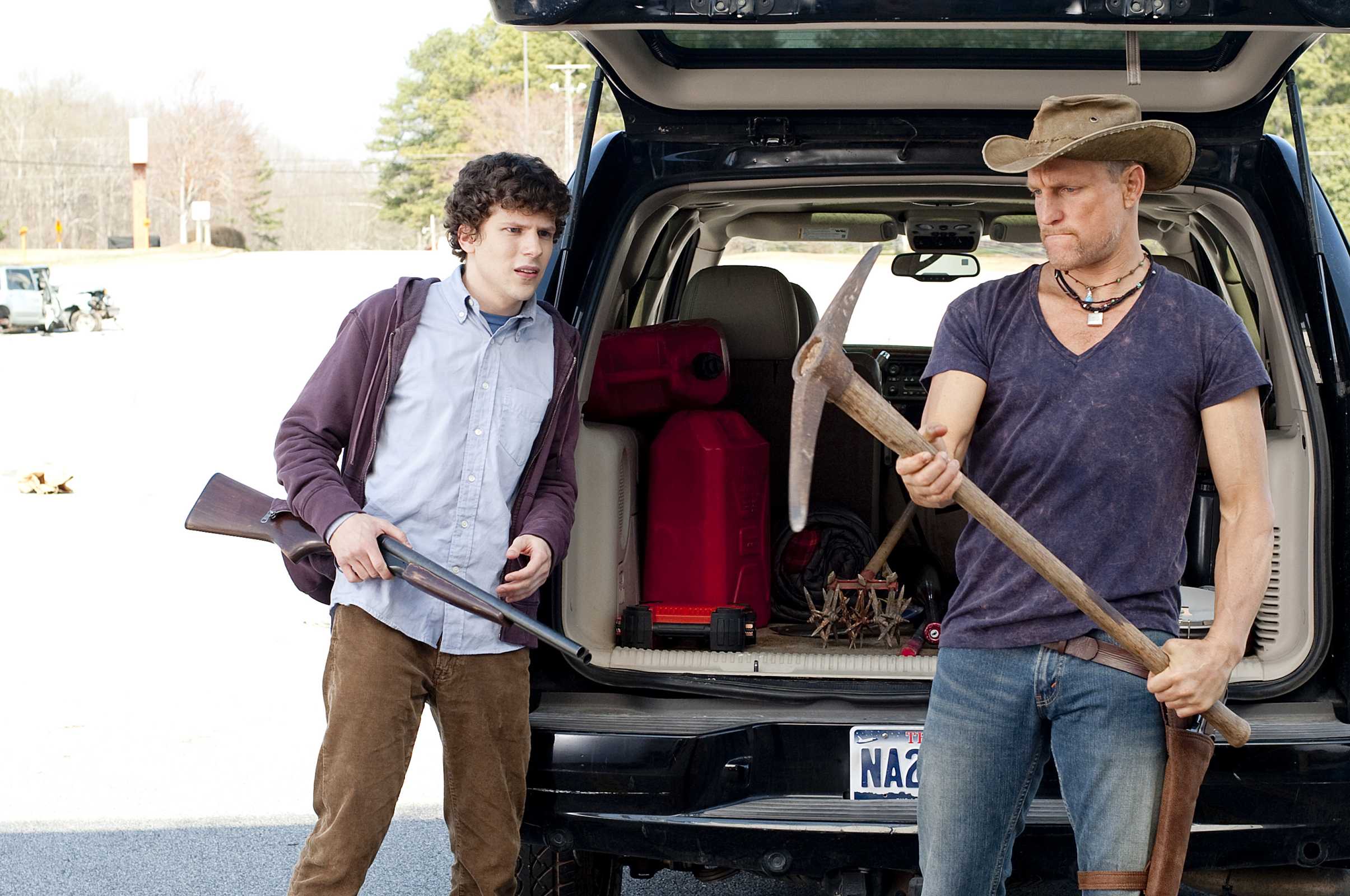
Replicating the commercial and critical success of ‘Shaun of the Dead’, Ruben Fleischer’s film helped secure the “zom-com” as a genuine subgenre. Never letting you forget what it is while masterfully juggling horror, romance, comedy and action, ‘Zombieland’ serves as both a great movie and an insightful retrospect on modern culture’s fascination with the zombie.
A group of survivors travel the American South-West searching for a refuge from a zombie apocalypse.
Art, as many have called it, is plagiarism. The zombie we know today is a barely legal rip-off of George Romero’s ‘Night of the Living Dead’, and before that, they were a rip-off of Victor Halperin’s ‘White Zombie’. The zombie, a voodoo legend stolen by the West, is a tale of plagiarism.
‘Zombieland’ sees the zombie myth for what it is – a disfigured superimposition of stolen images – and revels in it. It delivers the gory deaths that we have come to expect since ‘Dawn of the Dead’ yet realises its own ridiculousness, replacing the will to survive with the urge to eat another “Twinkies”, and opening almost like a comedic documentary by describing the “laws” attached to surviving in the genre.
The film even contains one of the most outrageous and hilarious cameos in any film.
In the end, the movie reaches a literal amusement park with real clown zombies, thus offering a fitting metaphor for the zombie genre itself: a bizarre thrill ride that’ll make you scream, laugh and maybe even cry.
‘Zombieland’ makes a persuasive argument for it being one of the finest ever horror-comedies. It enters the dangerous minefield between meta-horror and gratuitous parody and emerges triumphant.
13. Tucker and Dale vs. Evil (2010)
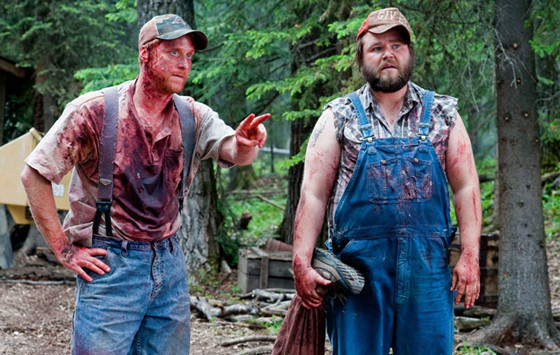
Eli Craig’s debut is a masterful manipulation of the “backwoods” (or “rural survival”) subgenre. Gleefully recognising and then reversing the genre’s conventions with fantastic violence and a crude smile, ‘Tucker and Dale vs. Evil’ has secured itself as one of the best horror-comedies in recent memory.
In an upturning of the traditional plot, the two eponymous hillbillies (Alan Tudyk and Tyler Labine) are well-being men mistaken as killers by a group of college campers.
The world our characters occupy is a mutated landscape of misplaced conventions and false archetypes: the evil hillbillies, the dark backwoods, the revenge cycle, the drugged-up, sex-crazed college students, obscene violence, the final girl, the cannibal’s cabin, the anniversary murder, snickering yokels and, of course, lethal wooding tools like hatchets, chainsaws and, quite memorably, wood-chippers.
Craig shows excellent insight, both in the art design of the cabin, woods and sawmill, in the direction in the case of the campers and hillbillies, and even in costume, in the case of our hero’s blood-strained overalls. The gory deaths are ridiculous, overplayed and sickly creative, offering a guilty chuckle then a pause to think.
‘Tucker and Dale vs. Evil’ sets up the rules established by ‘Deliverance’, ‘Friday the 13th’, ‘The Texas Chain Saw Massacre’ and ‘The Hills Have Eyes’ and then shows us how such inappropriate beliefs may lead to tragedy. Are we really superior because we come from urban areas and have access to cinemas?
‘Tucker and Dale vs. Evil’ successfully balances its fair share of horror and comedy, while also injecting some romance and metafiction into the mix. It offers a fun, tragicomic retrospect on the “backwoods” genre.
14. Rubber (2011)
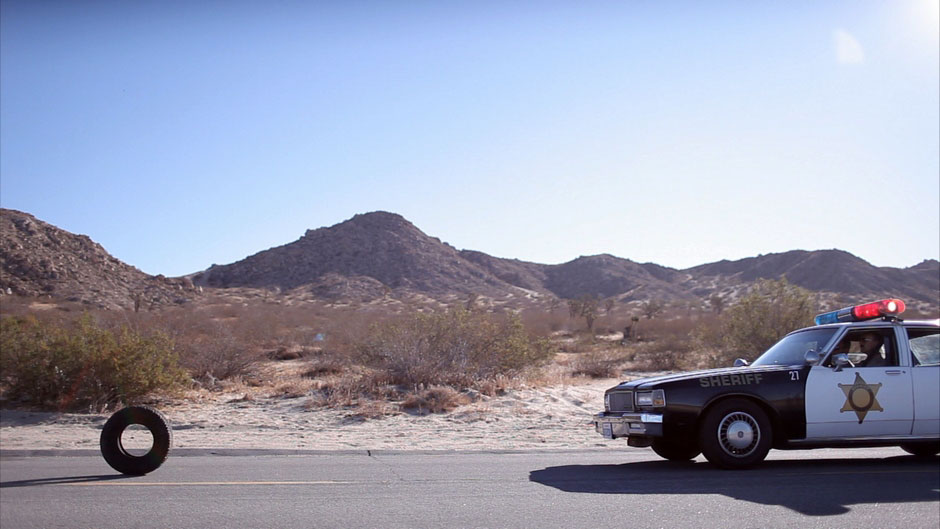
Quentin Dupieux’s ‘Rubber’ is about as weird as they come. Whilst it’s no masterpiece – overstaying its welcome and overestimating its own intelligence – it’s an admirable experiment, and delivers a surprisingly fun retrospect on the camp of B-movie cinema and the absurdity of film itself.
It would be an understatement to call the plot bizarre: a rubber tyre in the Californian desert – for no particular reason – comes to life, discovers it has telepathic powers, obsesses over a woman and murders men and animals.
In the end, the movie seems to be a satire on why we watch films and why we should suspend our disbelief. It questions why we should accept a premise which is utterly ridiculous, enjoy obscene depictions of violence and sympathise with characters which act irrationally.
‘Rubber’ claims to be homage to “no reason”. It opens to a car running over a series of chairs on a desert road, before a policeman leaps from the boot and reminds the characters of randomness in great films like ‘The Pianist’ and ‘The Texas Chain Saw Massacre’.
The movie itself consistently flickers between the narrative and the “audience” watching with binoculars in the desert; reminding us that it’s all a show and we’re the real freaks deciding to watch it.
‘Rubber’ is, at the very least, a unique film which every fan should see. Far better than you’d expect, it offers just enough clever horror movie tricks to please any fan and just enough postmodern fun to awaken your inner critic.
15. The Cabin in the Woods (2012)
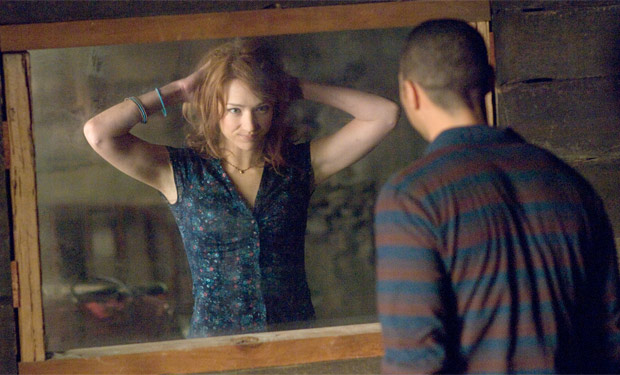
Drew Goddard’s directorial debut instantly became one of the greatest meta-horror movies ever made. Resembling a labyrinth more than anything else, ‘The Cabin in the Woods’ lulls you in with a promise of a typical plot with a typical set of characters, and then doubles back on itself time and time again.
A group of college friends travel to an isolated cabin which is actually the centre of a bizarre scientific ritual.
The medium of film, composed of predetermined frames and notes, is ritualistic, yet ‘The Cabin in the Woods’ seems to posit that the horror story is older than cinema itself.
Like any ritual, the horror film has its own preconceived “rules” or “steps” it must follow: there must be a whore (who must die first), an athlete, a scholar, a fool, and a virgin (who becomes the final girl), drugs and sex must be punished, evil must be found in a terrible place away from home, and the deaths must be bloody, predictable and ordered.
No one knows where the rules came from, but stray them and all hell breaks loose; hence the literally apocalyptic ending to the film.
‘The Cabin in the Woods’ reminds us that for characters in fiction there is no free will. While such a notion might eliminate the question of why the characters themselves go to an obviously nefarious place, it doesn’t answer why the audience would.
The answer to why we watch horror films, as it seems, lies in some primordial, even divine, legend. Goddard seems to be making a link between horror and tragedy; suggesting there is a kind of catharsis to be reached in each.
‘The Cabin in the Woods’ is an enigmatic tragicomedy. Funny, gruesome and thoroughly surprising, it stands as one of the greatest horror-comedies ever made.
Author Bio: Kyle McDonnell is an aspiring filmmaker based in Sydney, Australia. He recently graduated from high school and hopes one day to emulate his screen heroes David Lynch and Ben Wheatley. When he’s not watching, writing or filming, he can be found listening to ‘The Smiths’, contemplating life.